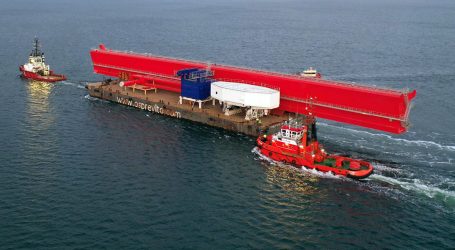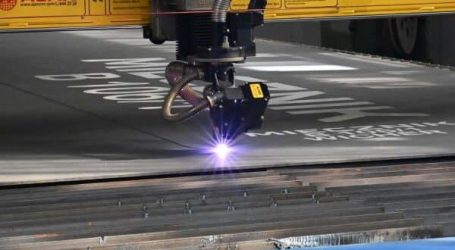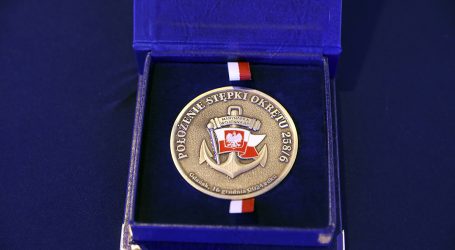Artificial Intelligence in the shipbuilding industry in Poland
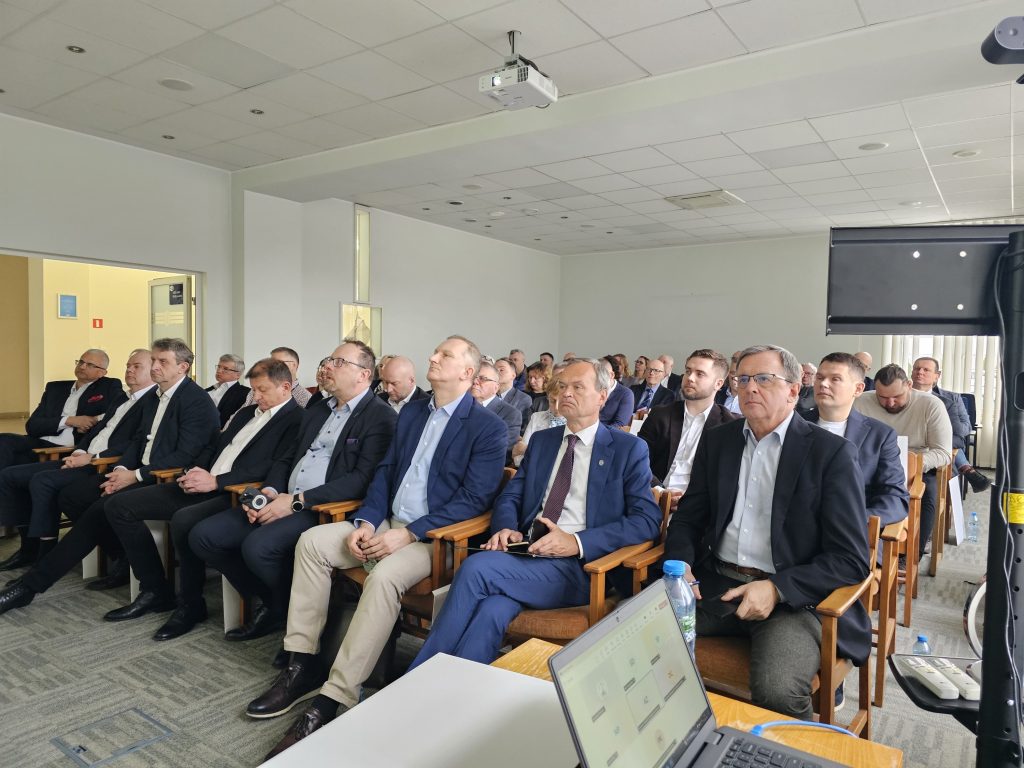
On February 3, 2025, another meeting of members Association of Polish Maritime Industries FORUM OKRĘTOWE was held at the headquarter of the Polish Register of Shipping in Gdańsk. This time devoted to the implementation of Artificial Intelligence (AI) in the shipbuilding industry in Poland.
Some companies associated with FORUM OKRETOWE are already gradually introducing AI into everyday use. We asked three of our members to share their knowledge and experience acquired so far. These were: Kongsberg Maritime Poland, Gdańsk Ship-repair Yard REMONTOWA and DNV Poland.
The selection of companies is not accidental: the most modern and innovative Polish shipyard, a company that is part of a group providing the most modern ships’ equipment in a very wide range, and finally, the classification society that ensures quality and manages the risk. Global leaders in their areas of operation.
We also invited a member of our organization, PwC Poland, to present during the meeting legal aspects related to the implementation of Artificial Intelligence.
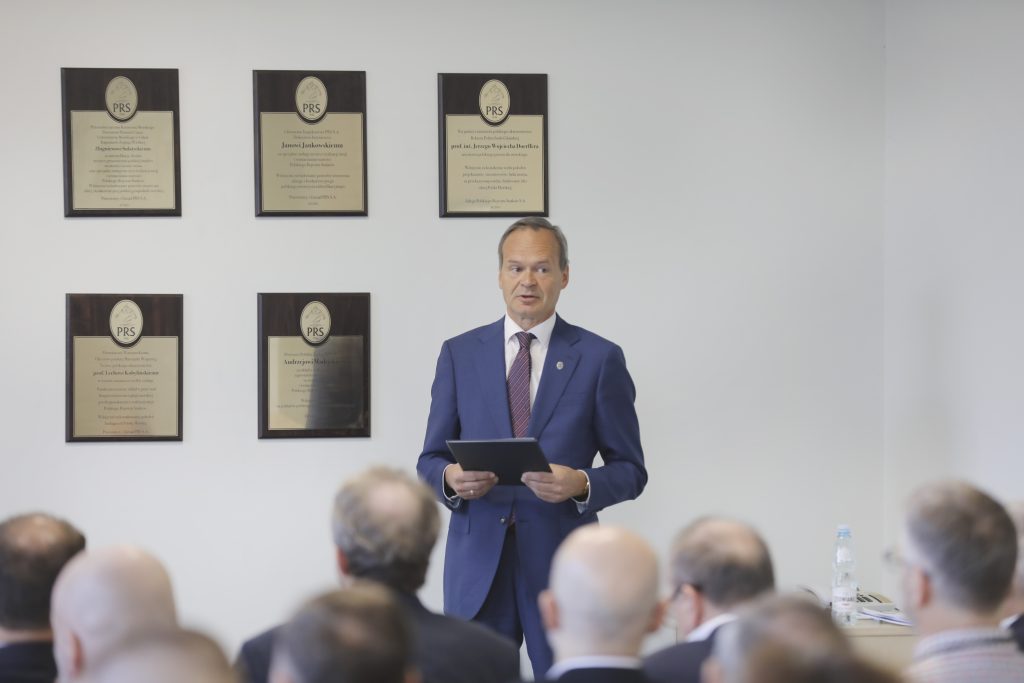
The participants were welcomed by the host of the meeting, the president of PRS S.A. Grzegorz Pettke, who emphasized the great importance of the discussion initiated by the FORUM OKRĘTOWE on Artificial Intelligence implemented in the shipbuilding industry in Poland.
Opening the meeting, Irek Karaśkiewicz, director of the FORUM OKĘTOWE, said
– Artificial Intelligence are systems and machines that perform tasks that until recently required human intelligence. It has great potential for iterative self-improvement based on collected information. It can improve processes and increase the productivity of companies – especially in industries that intensively use huge amounts of data, such as the shipbuilding industry. It can improve the productivity and competitiveness of our industry.
– However AI also carries risks. For example, it can generate convincing frauds and manipulations that are indistinguishable from reality. It is also not free from errors, which can be extremely costly for our companies.
– The shipbuilding industry, which is dominated by the safety factor – that is, the design, construction or conversion of vessels in such a way, that they ensure the safe transport of people, goods and the exploitation of marine resources – generally approaches all types of innovations with great caution. There are a lot of questions at this stage and in this context the exchange of experiences and information is crucial. And this is what our meeting today will be about.
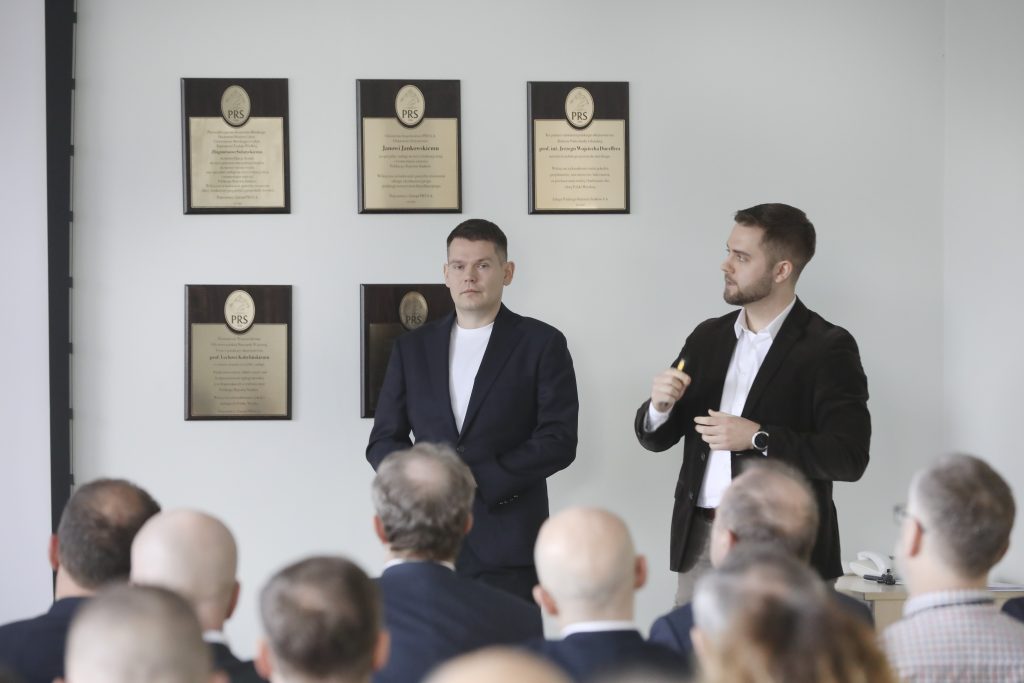
Robert Sikora and Wojciech Napiórkowski from Kongsberg Maritime Poland were the first to present to the audience what Artificial Intelligence actually is. The amount of data in almost every field is currently huge and growing every day, and this has created a natural need to construct a tool that can quickly analyze it and equally quickly answer the question. Such a tool – called AI – can be useful in many areas, including: when making decisions based on the data it collects.
It is also used in process control – for example, voice control on the bridge of a ship, the principle of which they described. Artificial Intelligence is therefore an extremely helpful instrument for interpreting available data. The word “Intelligence” in this case is used somewhat exaggeratedly. This term refers to analyzes performed in a manner similar to the human brain, and so far this tool does not have such capabilities. However, it is not impossible that it will be acquired one day, because we have entered the era of a global technological race in the field of AI, and this drives innovation.
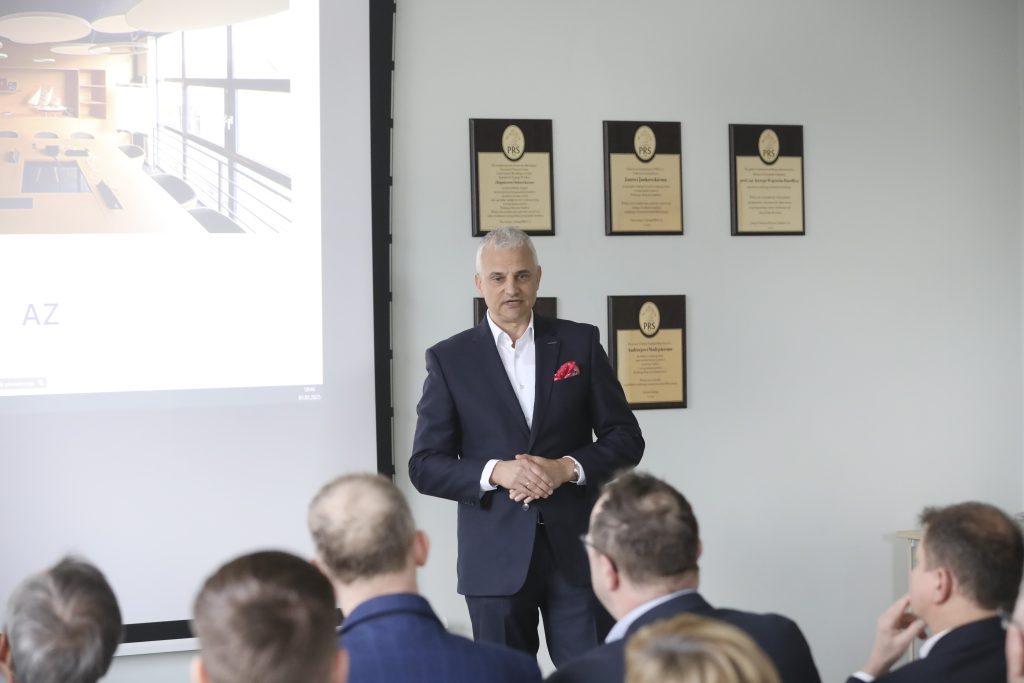
Then, Jacek Mądrala from the Gdańsk Ship-repair Yard REMONTOWA presented the overall concept of using Artificial Intelligence in shipyard processes. He did it in an original way by asking questions and obtaining answers from a bot created with the help of Artificial Intelligence and named “Kazimierz”.
During the conversation, various shipyard’s processes were analyzed: from the preparation of the offer, through the design and valuation of various works, production processes, control of documentation flow, constant identification of the workload of individual shipyard departments and others. Artificial Intelligence can significantly help in the process of collecting data needed to make accurate management decisions. It is intended to help improve shipyard processes. Concluding “Kazimierz”, he emphasized that it can significantly help people make decisions. But what this decision will be, should depend solely on the human being who is ultimately responsible for it.
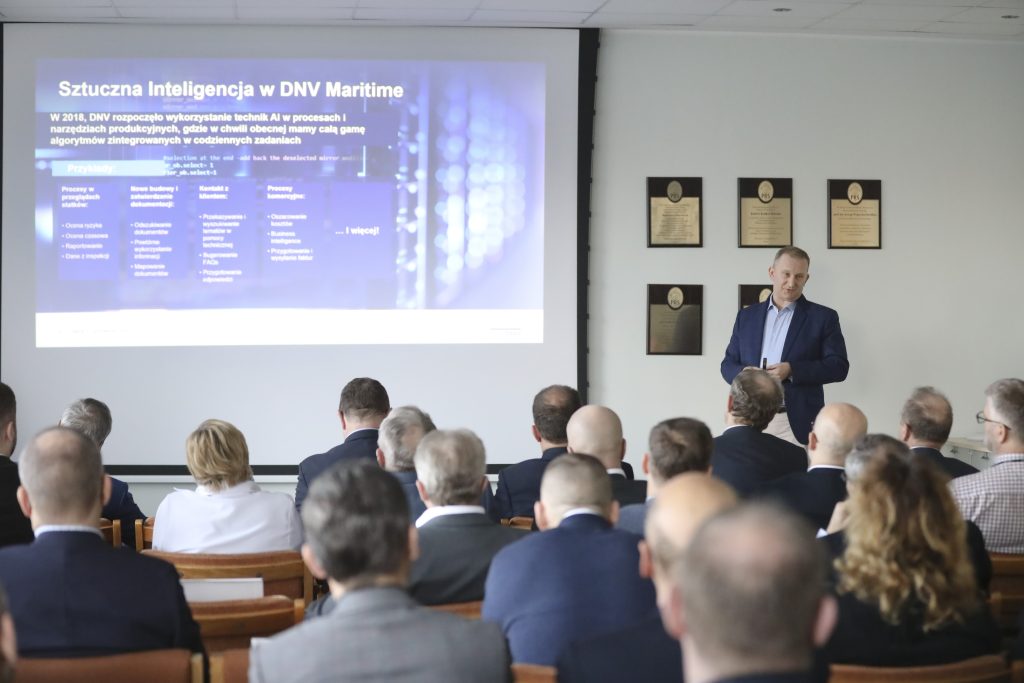
Then, the president of DNV Poland, Radosław Kubiszewski, discussed the use of Artificial Intelligence in DNV Maritime. He emphasized that the organization has been using it since 2018, and the related services are implemented in processes and services supporting customers and employees. DNV Maritime has a dedicated team of 20 people for the intelligent use of data in the Class Development department.
Continuing his speech – using several specific examples – he discussed the use of Artificial Intelligence: in communication with the client, class reviews and approval of documentation. Finally, he emphasized that creating processes related to the use of Artificial Intelligence at DNV is strictly related to risk management.
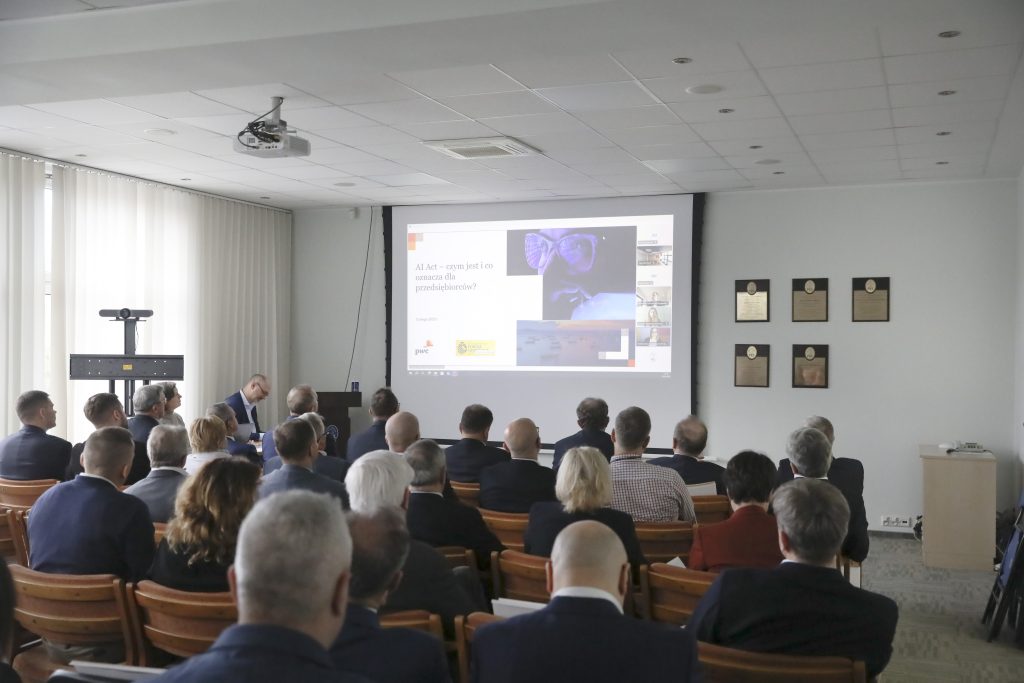
Legal aspects related to the regulation of Artificial Intelligence were discussed by: attorney Paulina Komorowska-Mrozik, attorney Aleksander Zieliński and attorney Dominika Chodkowska from PwC Legal in an online format. Using the example of the provisions of the “AI Act” and the draft of Polish act on Artificial Intelligence systems, they showed participants that with the increasing potential and use of AI comes special obligations. The speakers also pointed out that non-compliance with the “AI Act” may involve the risk of high financial penalties. This means that companies that use Artificial Intelligence should be aware of the implications this regulatory framework has for them.
On August 1, 2024, the “AI Act” entered into force, and subsequent important obligations arising from it come into force in 2025, 2026 and 2027. This key document sets out the regulatory framework for the development, implementation and use of Artificial Intelligence in the European Union. The Polish Ministry of Digitization is already working on a draft bill that will allow the application of the “AI Act” in our country. It has now been submitted for public consultation.
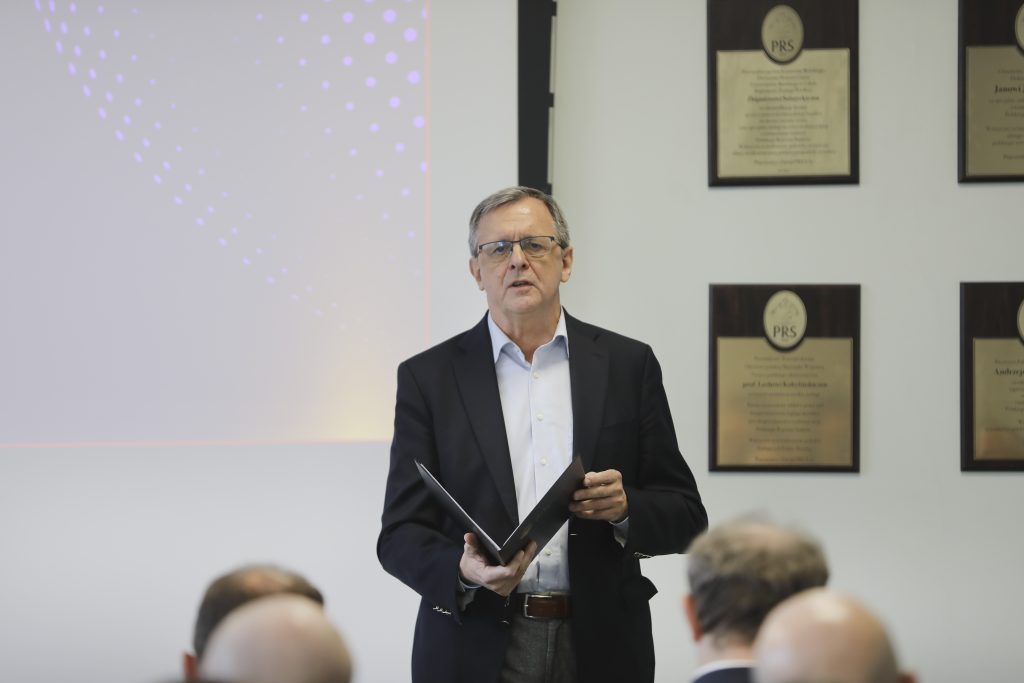
Summarizing all the topics discussed during the meeting, Irek Karaśkiewicz, director of the FORUM OKRĘTOWE said:
– After listening to all these extremely interesting presentations, we are all richer for the knowledge we have gained today. They have one common thought: Artificial Intelligence should support people at work, not to replace them. It can significantly help increase the efficiency of shipbuilding companies, and thus improve the competitiveness of our sector. It can also accelerate research and development – for example in the area of zero-emission technologies
– It can finally relieve us from many routine and time-consuming activities. Therefore, we must first identify these activities in our companies and then use Artificial Intelligence to implement them in a thoughtful way. But when implementing it, we need to be careful and use a lot of common sense.
– Artificial Intelligence is just a tool and – as all the speakers emphasized – it always needs to be under full control. It can greatly help us to make decisions. But what decision it will be should always depend solely on the human being, because he or she bears full responsibility for it and will face its consequences. This is particularly important in the shipbuilding industry, where the safety factor is dominant.
– The legal aspect related to Artificial Intelligence, presented by our colleagues from PwC Legal, is also very important. European Union regulations, which will soon be implemented into Polish legislation, provide draconian financial penalties for non-compliance. Some countries have gone even further and provided prison sentences.
– Some of the provisions of the “AI Act” – including those regarding prohibited practices – have just entered into force on February 2, 2025. Almost all meeting participants were surprised by this fact. The next regulations will gradually enter into force in the coming months and years, and that’s why it’s worth being aware of them – concluded the director of the FORUM OKRĘTOWE.
Source: Forum Okrętowe
Photos: Sławomir Lewandowski/ PortalMorski.pl

